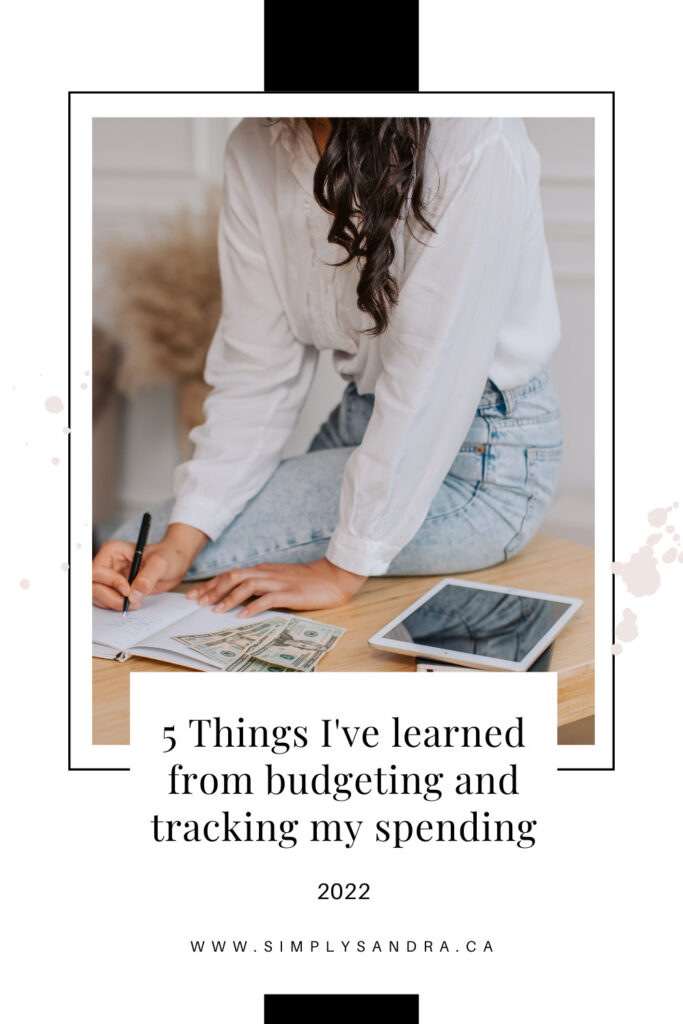
I’ve spent years and years tracking and collecting data of every dollar that I’ve spent and earned. I’ve learned a lot about myself and my spending that I certainly wouldn’t have known without paying close attention to the numbers.
Firstly, I’d like to preface this post by acknowledging that budgeting and personal finances is very individualistic. The way you plan your spending, spend your money and save your money is so different for every person. There is no one size fits all methodology. Each person has their own goals, objectives and financial situations. Have some grace and patience with yourself and try to minimize comparing yourself to others (which I find increasingly difficult in the FIRE/personal finance space).
While I love writing about money I do it from place of love and just sharing my thoughts and not from a place of judgment. I do this in hopes of reaching someone who can relate and may find some helpful information in this post.
Here are just some of the few things I’ve learned from my money data:
1) tracking your spending works hand in hand with budgeting
I see a lot of posts and materials online about budgeting and how that is a key to financial health. However, I think that tracking your spending is the other key to making your budget effective. If you’re setting goals (budgeting) but not tracking your spending then you’re not giving yourself an opportunity to assess your progress and course correct. Budgeting and tracking your spending are two sides of the same coin.
2) be realistic
Don’t try to cut things cold turkey that regularly occur on your budget /spending chart. I think it’s important to assess where you spend your money and what gives you joy. For some it may be food; for others it may be clothes. While this looks different for everyone, it’s important that the amount is thoughtful and acceptable for your income and comfortable for your budget. You can work to this slowly.
As an example if you’re spending $300 on clothes each month, try reducing that to $200 and then $100 (if your goal is to reduce spending in this category). Treat this more as a lifestyle change rather than a temporary restriction.
3) go easy on yourself
Show yourself some grace. I’ve read and heard about burnout amongst those aggressively saving for early retirement or aggressively paying off their student loans. I’ve experienced this burnout myself thinking that there was no end in sight. It is important to enjoy life while on this journey and reward yourself when you can without derailing your goals and objectives.
4) look at the week, the month and the year
For someone who is not self employed and has a constant stream of income that is the same amount over a regular interval, perhaps you’d like to explore budgeting per pay period. Whether that be biweekly or monthly this is a great way to effectively manage cash flow.
If you are generally budgeting on a monthly basis, try breaking that budget down further into weeks. It makes it more manageable. It also allows you to revisit your budget more frequently thereby keeping you in constant check on where you are in the week and how much you have spent in each category so far.
Not only should you be looking at the week breakdown as I’ve mentioned in one of my previous posts, it is also helpful to look at the year going forward. Ascertain what events you have going on each month whether it be a birthday, wedding or a trip, this will determine what your spending will look like that month. This practice helps me spread out my low spend and high spend months in order to manage my cash flow.
5) pay attention to trends that you notice and try and challenge those habits
The beauty of budgeting and tracking your spending is being able to be financially aware of your own money situation. Knowledge is power. It’s truly empowering knowing where your money is going and being able to allocate your money towards your personal goals and things you enjoy.
On the flip side, there are also some bad habits that may be restricting you from meeting your goals. Resetting and revamping you finances really forces you to scrutinize your spending behaviours and notice what in particular triggers you to spend and how you feel after you’ve spent you money.
Personally, I have been in situations where I’ve been working in a very stressful environment which really triggered me to buy things in order to make myself feel better – retail therapy. This habit was certainly not healthy for my mental health, the planet or my wallet. I noticed that the pleasure in buying things did not particularly last.
Social media has not been particularly helpful in my journey to more thoughtful consumerism as we are constantly bombarded with advertisements. Being bored will also trigger my scrolling on various we sites adding things to my cart. These are just some of the habits I am working on breaking.
Feel free to share in the comments what you’re working on financially and what your high-spend categories are.

